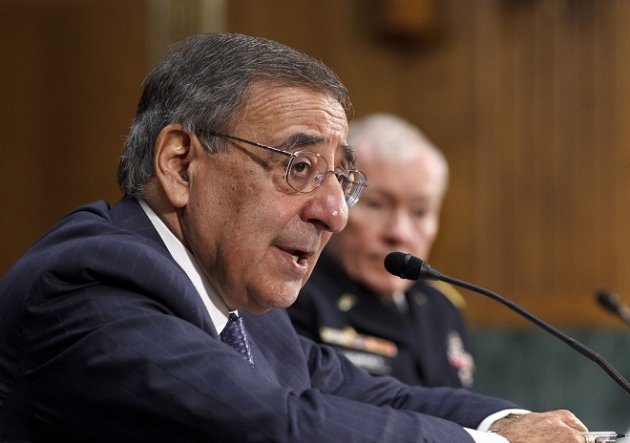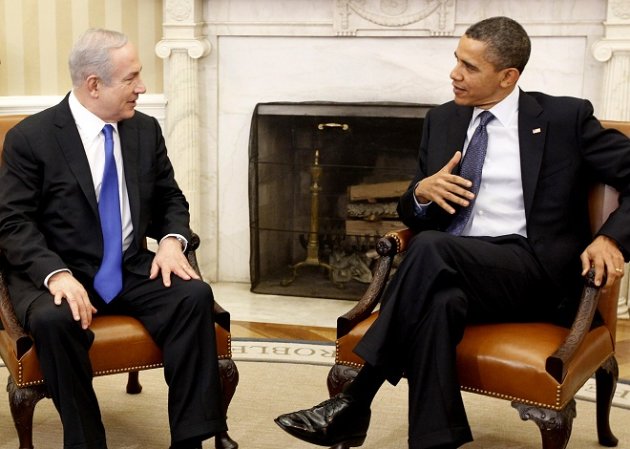 Defense Secretary Leon Panetta and CJCS Gen. Martin Dempsey testified on Syria to the Senate Armed Services panel …Defense Secretary Leon Panetta and top general Martin Dempsey, testifying to the Senate Armed Services panel Wednesday, cautioned that military intervention in Syria would be a risky and very complicated endeavor, but said it's a future possibility. But they stressed that the United States should not act alone.
Defense Secretary Leon Panetta and CJCS Gen. Martin Dempsey testified on Syria to the Senate Armed Services panel …Defense Secretary Leon Panetta and top general Martin Dempsey, testifying to the Senate Armed Services panel Wednesday, cautioned that military intervention in Syria would be a risky and very complicated endeavor, but said it's a future possibility. But they stressed that the United States should not act alone.
Facing tough questions from Sen. John McCain (R-Ariz.), who called earlier this week for U.S. airstrikes against the Bashar al-Assad regime, Panetta said the United States should consider acting only as part of an international coalition.
"What doesn't make sense is to take unilateral action at this point," Panetta said. "As secretary of defense, before I recommend we put our sons and daughters in uniform in harm's way, I've got to be very sure what the mission is, if we can achieve that mission, at what price and whether it will make matters better or worse."
"Can you tell me how much longer the killing would have to continue in order to convince you that military measures of the kind we are proposing be considered?" an impatient McCain fired back. "What's wrong with your statement is American leadership. America should lead, it should be building the international coalition."
The defense chiefs said they had provided assessments of the situation on the ground in Syria to the administration, but had not yet been tasked by the president with drawing up full-fledged options for possible military intervention there.
Questioning from Rhode Island Democratic Sen. Jack Reed, a former Army Ranger and West Point graduate, gave the U.S. defense chiefs a chance to elaborate on the complexities of such an intervention and the reasons to proceed extremely cautiously.
Syria, "unlike Iraq, has no natural safe haven areas," Reed said. "The notion that we can in a few hours or days quickly go in and establish superiority and stop the fighting is not accurate."
After acknowledging the many challenges, Dempsey said, "But I want to be clear: We can do it. It's not a question of 'can we do it;' it's 'should we do it.'"
The hearing comes as the United Nations humanitarian chief Valerie Amos was able to enter Syria Wednesday and travel to the besieged city of Homs and its most devastated neighborhood, Bab Amr.
The International Committee of the Red Cross also said it was able for the first time to get into the Bab Amr neighborhood, after days of being blocked by Syrian regime forces. But upon its arrival, it found that almost all of the residents had fled.
More popular Yahoo! News stories:
• Obama to Netanyahu: Give Iran diplomacy more time
• Window for Iran diplomacy: How much time?
• World powers propose new nuclear talks with Iran
Want more of our best national security stories? Visit The Envoy or connect with us on Facebook oron Twitter.


 本城市首頁
本城市首頁



























